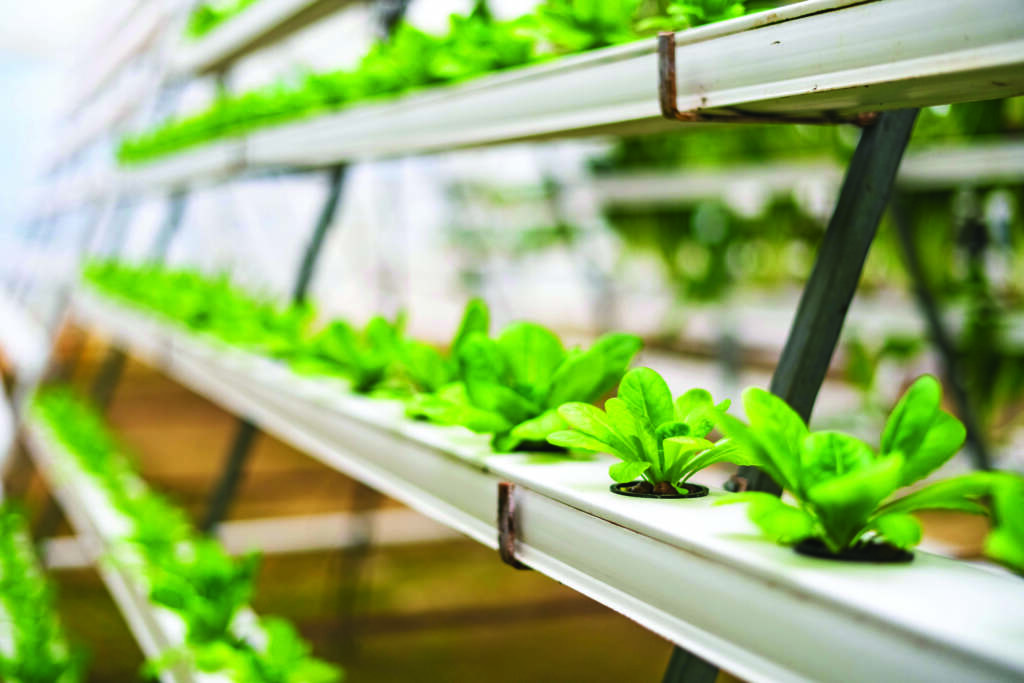Nicole Tau
Hydroponics could very well be something out of an Avengers’ inspired nation, Wakanda.
And yet, with only nine percent of the land being arable in Lesotho and projected adverse climate change effects, growing thousands of crops without soil could very well be the new reality for Basotho adopting innovative agricultural practices to sustain their livelihoods and preserve their land.
A recent report by Zero Hour Climate, published on February 24, this year, warns that Lesotho faces heightened vulnerabilities from climate change.
Rising temperatures, less rainfall, and more frequent floods and droughts are expected. This will significantly affect essential aspects of life in the country, including water availability, farming, and grazing land quality.
For years, in line with indigenous practices, to conserve arable land and mitigate soil erosion, Basotho have built their homes on mountaintops, reserving the precious lowlands for extensive fields.
Traditional methods like Likoti and Machobane, which emphasise soil conservation and efficient water use, are being integrated with modern practices to enhance acceptability among rural households. These approaches not only improve crop yields but also help combat soil erosion and land degradation.
Lesotho’s mountainous terrain presents formidable obstacles for agriculture. Soil erosion, rocky outcrops, and steep slopes are common, making traditional farming techniques impractical.
Agriculture in Lesotho is not for the faint-hearted. Farmers face numerous challenges, from unpredictable weather patterns to infertile soils. According to Bonang Monesa, an expert in animal science with extensive experience working with rural farmers, soil erosion is a critical issue in Lesotho.
“Our land suffers from heavy soil erosion due to the slopes,” Monesa notes. “Rocks along grazing and planting areas also hinder plant growth, making it hard to sustain crops.”
Despite these obstacles, farming remains a vital component of the rural economy. For many, it is a means of survival in an environment that offers few alternatives. Subsistence farming is prevalent, with families growing enough to feed themselves and occasionally sell surplus produce.
The resilience of the Basotho is evident in their innovative approaches to farming. Conservation Agriculture (CA) practices are gaining traction, promoted by Non-Governmental Organisations (NGOs) like ReNoka and supported by the Ministry of Food Security and Agriculture.
Techniques such as keyhole gardens, small-scale irrigation, and organic manure application are helping farmers increase productivity on limited arable land.
Mochesane Mpali, the innovator behind soilless gardening techniques, highlights a modern twist to traditional practices. Mpali’s company, Lema Agrivest, specialises in hydroponic systems that allow crops to grow in nutrient-rich water instead of soil.
“I help people who want to grow crops anywhere they are, even inside their own houses,” he says. Using minimal space and 90 percent less water than traditional agriculture, hydroponic gardens can produce abundant crops in half the time.
In hydroponics, plants are inserted at specific points along the PVC pipe, through which nutrient-rich water is pumped. The pipe supports the plant roots and retains moisture and nutrients.
“Plants do not necessarily need soil to grow,” Mpali explains. “But they need water, nutrients, carbon dioxide, oxygen and light, all of which are provided in our system.”
His journey into hydroponics began in response to food criticism exacerbated by COVID-19 restrictions.
Raised in Berea, he spent his childhood herding livestock and attending school. After graduating in Information and Communication Technology, he worked for a leading tech company in Lesotho. However, the 2019 food crisis rekindled his interest in farming.
“During the food crisis, everyone was panic-buying, and prices were soaring,” he recalls. “As a tenant in Maseru, I could not manage traditional farming. So, I explored alternative methods and became captured by hydroponics.”
Now hydroponics fits seamlessly into Lesotho’s traditional practices, especially in regions with limited arable land. Mpali’s approach emphasises simplicity and accessibility.
“We want to be the leading provider of easy access to climate-smart agriculture practices,” he says.
Lema Agrivest promotes a philosophy of “Letsema,” which means collaboration and awareness. They aim to support widespread adoption of hydroponics and other innovative practices to combat food insecurity.
Hydroponics conserves arable land by enabling high-density crop production in small spaces. Mpali projects that hydroponics can help about 20 percent of Lesotho’s arable land in the next five years.
“In a six by twelve meter space, we can grow about 3,000 vegetables compared to 300 plants in conventional farming,” he notes.
Implementing hydroponics in Lesotho’s rural, mountainous regions comes with challenges. Lack of knowledge and capacity building are significant hurdles.
“Hydroponics is very new, and many people lack the knowledge to maintain such systems,” Mpali explains. And notes that although power supply is another challenge, solutions like solar power are making electricity more accessible.
Mpali envisions a future where hydroponics plays a central role in Lesotho’s agriculture. “It provided access to fresh produce year-round, regardless of location. Hydroponics is a readily available solution to our climatic challenges,” he asserts. The impact of hydroponics is already evident in communities like Nazareth, Ha Molengoane, where a local farm has increased its vegetable yield from 300 to 2560 plants.
Lema Agrivest supports farmers and individuals interested in hydroponics through training programs, free tours and exhibitions. They aim to ease access to hydroponic technology and foster a culture of innovation and resilience in agriculture.
Mpali’s dedication to hydroponics has profoundly changed his life. “I decided to leave the corporate world and focus on this because of its socio-economic benefits,” he says. “Having a community with access to fresh produce can have a significant impact.”
For farmers in his community, hydroponics has revitalized their passion for agriculture. Increased yields and efficient use of space have transformed small-scale farming, providing food security and economic opportunities.
The challenges faced by the Basotho are not unique; limited arable land, climate variability, and economic constraints are common across the continent. However, the solutions they have developed showcase the ingenuity and resilience of African farmers.
Basotho’s innovative agricultural practices, both traditional and modern, exemplify the resilience and ingenuity required to thrive in challenging environments. This strength offers valuable lessons in sustainability and adaptation, resonating with rural communities across Africa.
Mpali’s dedication to hydroponics has not only revolutionised his own life but also brought transformative change to his community.
As Mpali reflects: “Hydroponics has transformed my life and the lives of farmers in my community. It allowed me to leave the IT profession and focus on this impactful, socio-economic initiative. By increasing yields in small spaces, we can make a significant difference in food security and inspire others to embrace innovative farming methods.
“By increasing yields in small spaces, we can make a significant difference in food security and inspire others to embrace innovative farming methods.”

Your Trusted Source for News and Insights in Lesotho!
At Newsday Media, we are passionate about delivering accurate, timely, and engaging news and multimedia content to our diverse audience. Founded with the vision of revolutionizing the media landscape in Lesotho, we have grown into a leading hybrid media company that blends traditional journalism with innovative digital platforms.












